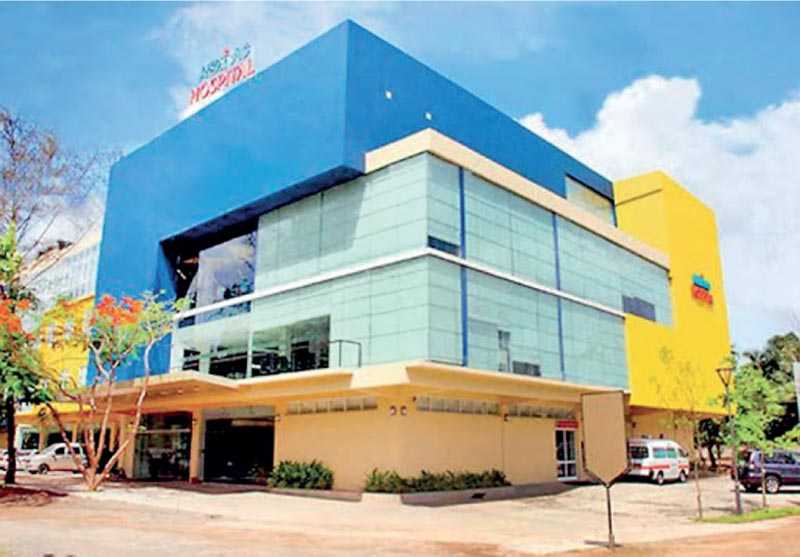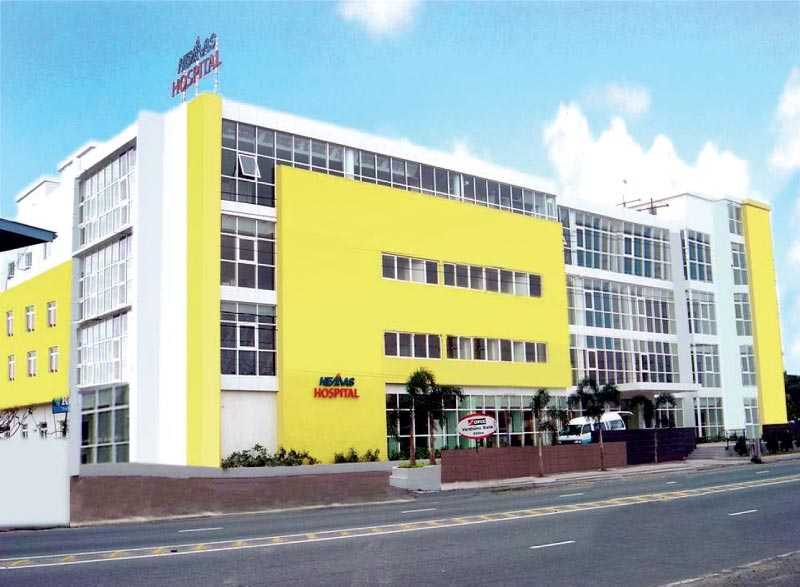Saturday Feb 28, 2026
Saturday Feb 28, 2026
Friday, 2 October 2020 00:00 - - {{hitsCtrl.values.hits}}

Hemas hospital Thalawathugoda

Hemas hospital Wattala
Sri Lanka’s most reputed private healthcare institution Hemas Hospitals reasserts its deep commitment to providing safe access to healthcare this World Patient Safety Day. With about 14% of the COVID-19 cases reported to the World Health Organization (WHO) being among health workers, the objective of World Patient Day 2020 was to raise global awareness about the importance of addressing health worker safety as a prerequisite to patient safety.
Demonstrating their strong commitment to health worker and patient safety, Hemas Hospitals was recently fully re-accredited by the Australian Council of Healthcare Standards International (ACHSI) for the third consecutive term. The accreditation is reassurance from global experts, of Hemas Hospitals’ dedication to adhere to global best practices in care to ensure maximum levels of safety; all which directly results in reduced length of stay, faster recovery for the patient and reducing the cost of treatment. It holds the record as the first hospital in Sri Lanka to be awarded this prestigious international accreditation.
Another powerful testament to the hospital’s commitment is its pioneering launch of the world’s first Infectious Patient Transportation Chamber (IPTC); a sealed, easily manoeuvrable cubicle with wheels to contain and transport suspected or positive COVID-19 patients. An innovation credited to an employee of the hospital, the chamber was designed with the primary objective of warranting the safety of hospital employees and patients. The IPTC has since been regarded as a critical tool in preventing the mass contamination of hospitals treating patients suspected or positive for carrying highly contagious diseases.
“2020 has been a challenging and eye-opening year for the issues of safety in our healthcare systems, from effectively equipping and supporting frontline health workers in their important work to equitably serving and treating patients. Therefore, a knowledgeable, skilful, motivated and cautious healthcare workforce is critical in providing appropriate and safe care to patients,” said Hemas Hospitals and Laboratories Managing Director and Association of Private Hospitals and Nursing Homes President Dr. Lakith Peiris.
He went on to emphasise that health workers, particularly those participating in any pandemic response, are exposed to numerous occupational risks to health and safety. “In addition to physical risks, the ongoing pandemic has exposed numerous gaps in our healthcare system and placed extraordinary levels of psychological stress on health workers exposed to high-demand settings for long hours, living in constant fear of disease exposure while separated from family and facing social stigmatisation. With this recognition, we were quick to implement a COVID-19’ protocol, which is exclusively based on the rigorous guidelines set forth by the epidemiology unit of the Ministry of Health (MOH) as well as the World Health Organisation (WHO) to ensure the protection of all stakeholders,” he continued to state.
Patient triaging areas with temperature and health checks were aggressively implemented at the hospital chain, along with multiple disinfection stations. Special seating areas too were set aside for the loved ones of patients to avoid over-crowding of the premises. All hospital staff were thoroughly educated on the pandemic, and regular disinfection of the hospital environment was kicked into high gear. All staff that come into direct contact with patients were trained on the process of wearing and disposing Personal Protection Equipment to avoid cross-contamination and infection.
Hemas Hospitals is serviced by a dynamic team of professional medical and nursing staff who are dedicated to ensuring patient safety and excellent clinical outcomes. To keep doctors, physicians and other healthcare workers safe, non-emergency surgeries were only performed if the patient had tested negative for COVID-19. Additionally, clinical practices like emergency intubations were carried out in isolated areas, and advanced ultraviolet air sterilisation was introduced to ensure that nurses and doctors would not be in immediate danger.